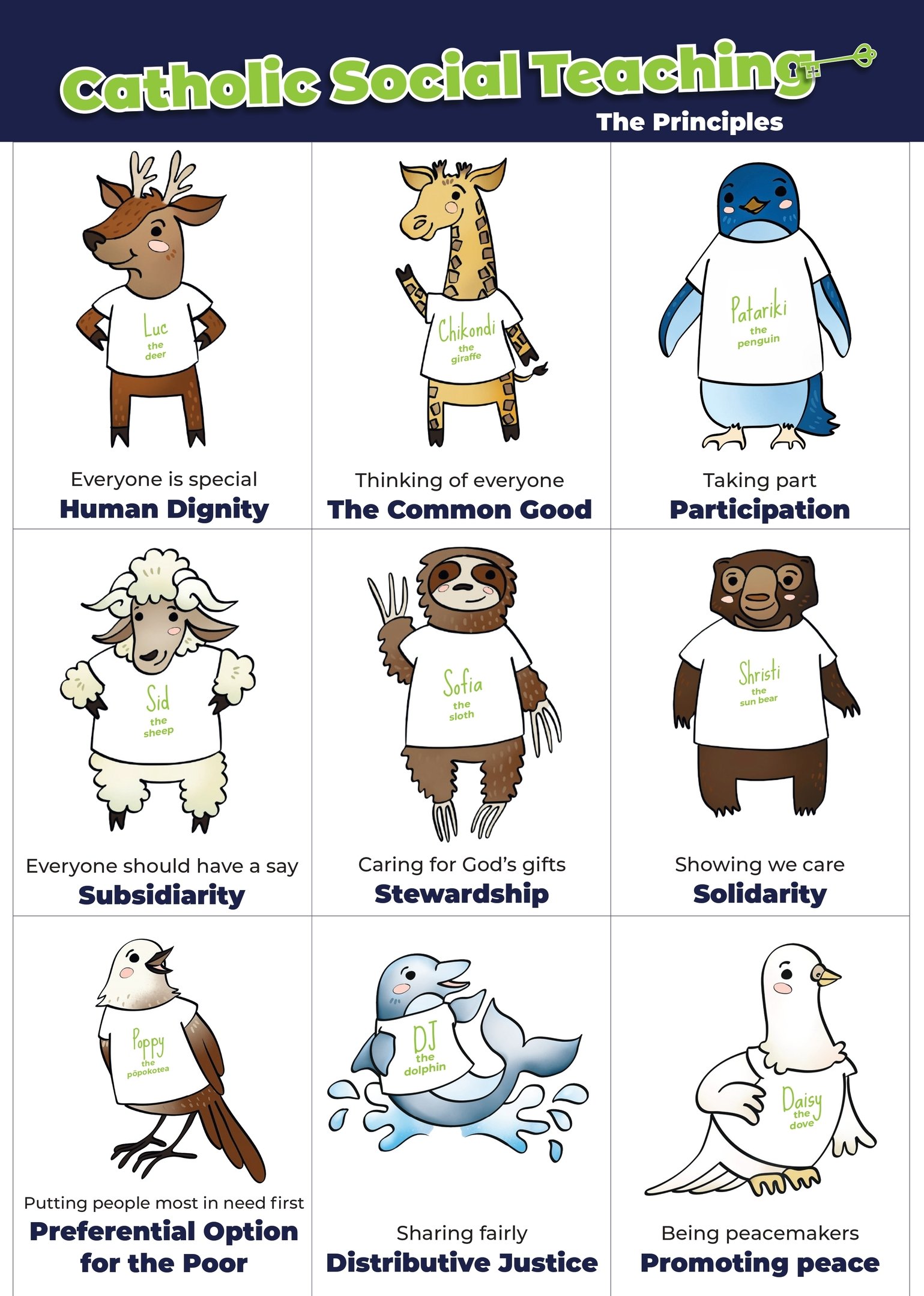Catholic Social Teaching
The following principles guide our community at SSPP.
We strive to apply our faith to social, economic, and political issues, aiming to create a more just and compassionate society.
Life and Dignity of the Human Person:
“Before I formed you in the womb, I knew you.” Jeremiah 1:5
Every person is sacred and possesses inherent dignity as they are created in the image of God.
Society must protect and enhance the dignity of all individuals, from conception to natural death.
Call to Family, Community, and Participation:
"We are one body, individually members one of another." Romans 12:4-8
The family is the central social institution and must be supported and strengthened.
Individuals have a right and a duty to contribute to society and participate in the common good.
Rights and Responsibilities:
"Open your mouth to speak on behalf of those in need." Proverbs 31:8-9
Every person has a right to life and to the basic necessities that ensure human decency.
Individuals have a responsibility to respect the rights of others and contribute to the common good.
Option for the Poor and Vulnerable:
“True worship is to work for justice and care for the poor and oppressed." Isaiah 58:5-7
The moral health of a society is judged by how it treats its most vulnerable members.
Societal structures should prioritise the needs of the poor and marginalised.
The Dignity of Work and the Rights of Workers:
The Lord blesses our work so that we may share its fruits with others.” Deuteronomy 14:28-29
Work has a value beyond its economic significance and is a fundamental human right.
Workers have the right to organise and participate in economic decisions that affect them.
Solidarity:
“In truth I tell you, in so far as you did this to one of the least of these brothers [or sisters] of mine, you did it to me.” Matthew 25:40
We are all part of one human family, and our actions should reflect a sense of solidarity with others.
Concern for the well-being of others and working towards justice are essential expressions of solidarity.
Care for God's Creation:
“Humans are commanded to care for God’s creation." Genesis 2:15
Stewardship of the environment is a moral responsibility.
Humanity is called to respect and protect the integrity of all creation.
Subsidiarity:
“If a man shall not work, he shall not eat.” 2 Thessalonians 3:10
Decisions should be made at the most local level possible, as long as they do not violate the principle of the common good.
Larger institutions should support and not supplant the role of smaller and more immediate communities.
Common Good:
“You are not making a gift of your possessions to the poor person. You are handing over to them what is theirs.” Saint Ambrose (340-397 AD)
The common good requires the social conditions that allow individuals to reach their full human potential.
It involves respecting the rights and promoting the well-being of everyone in society.
Community and Participation:
"Bear with each other and forgive one another if any of you has a grievance against someone. Forgive as the Lord forgave you." Colossians 3:13
Communities have a role in shaping individuals, fostering social interaction, and promoting solidarity.
Participation in social, economic, and political life is a duty and a right for all individuals.
SSPP is not responsible for the content of any external links or websites.

















